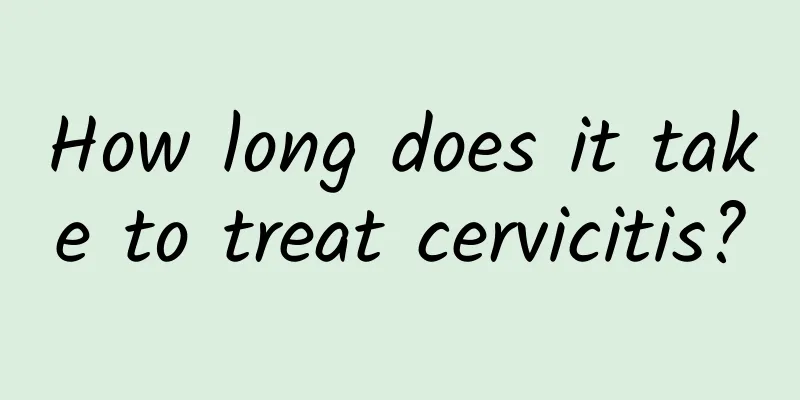Pelvic inflammatory disease taking medicine to expel blood clots

|
Taking medicine to expel blood clots from pelvic inflammatory disease may be caused by menstruation, pelvic inflammatory bleeding, cervicitis, endometritis, endometrial polyps and other diseases. You need to go to the hospital in time and follow the doctor's advice to treat it through the use of drugs, hysteroscopic surgery and other methods according to the cause. 1. Menstruation: If menstruation occurs during the treatment of pelvic inflammatory disease, it may cause blood stasis in the vagina. This is a normal phenomenon. You should pay attention to keeping the vagina clean and hygienic to prevent infection. 2. Pelvic inflammatory bleeding: Pelvic inflammatory disease is usually caused by pathogen infection. If the condition has not fully recovered during medication, it may cause a small amount of bleeding and abnormal secretions. Standardized medication is required. You can take metronidazole tablets, tinidazole tablets, amoxicillin capsules and other drugs as prescribed by the doctor, which can play an anti-infection role. 3. Cervicitis: It is usually caused by pathogen infection or bad hygiene habits. It may cause abnormal vaginal bleeding and increased secretions. You need to take cefuroxime tablets, cefuroxime axetil tablets, doxycycline hydrochloride tablets and other drugs as prescribed by the doctor to fight infection. 4. Endometritis: It is usually caused by pathogen infection, frequent intrauterine operation and other factors, which will cause abnormal shedding of the endometrium, so there will be blood clots and abdominal pain. You need to follow the doctor's instructions to take levofloxacin tablets, ofloxacin capsules, cefdinir capsules and other drugs to promote the disappearance of inflammation. 5. Endometrial polyps: They may be caused by genetics or abnormal hormone levels in the body, which will cause the area of the endometrium to increase and easily cause abnormal bleeding, so there will be blood clots. They can be treated through hysteroscopic surgery to remove the polyps. In addition, it is also possible that you have diseases such as uterine fibroids and need to see a doctor as soon as possible. You should pay attention to getting more rest, strengthening physical care, and reducing the occurrence of diseases. |
<<: What are the symptoms of cervical erosion
>>: What causes ectopic pregnancy?
Recommend
How to prevent ectopic pregnancy?
In recent years, the incidence of ectopic pregnan...
What are the factors causing vaginal candidiasis?
Vaginal candidiasis is the most common gynecologi...
Do you know the symptoms of severe cervicitis?
Severe cervicitis is a chronic pathological proce...
The wall of the ovarian cyst is not smooth, with little blood flow signal
The wall of the ovarian cyst is not smooth and ha...
Can female uterine effusion be cured?
Can female uterine effusion be cured? Uterine eff...
Will female cervicitis lead to infertility? 3 types of methods for treating cervicitis in women
Female cervicitis causes infertility, so early de...
How to adjust your diet after childbirth
How to adjust diet after miscarriage? Miscarriage...
Is there still leucorrhea after menopause at the age of 50?
Whether there is still leucorrhea after menopause...
Experts explain the common symptoms of cervicitis
The cervix is an important part of the female r...
Experts explain the causes of cervical hypertrophy
In recent years, cervical hypertrophy has become ...
What are the most common symptoms of uterine fibroids?
What are the most common symptoms of uterine fibr...
Doctors remind: If you have 4 symptoms, menopause may be coming quietly
There are many symptoms of menopause, such as hot...
What's wrong with delayed menstruation and very little flow?
What happens if my menstrual period is delayed an...
Work is so tiring! Eat the right 6 stress-relieving foods and stay away from fatigue!
So tired! Office workers are busy with work and e...
Is eating breakfast really harmful to your health? You should listen to your body.
There is an old saying: "A day's plan be...









